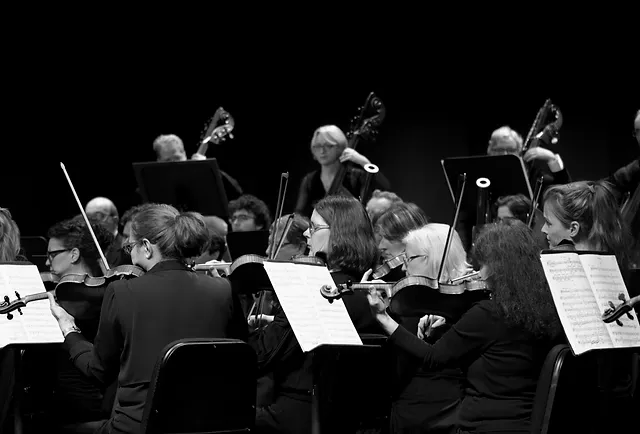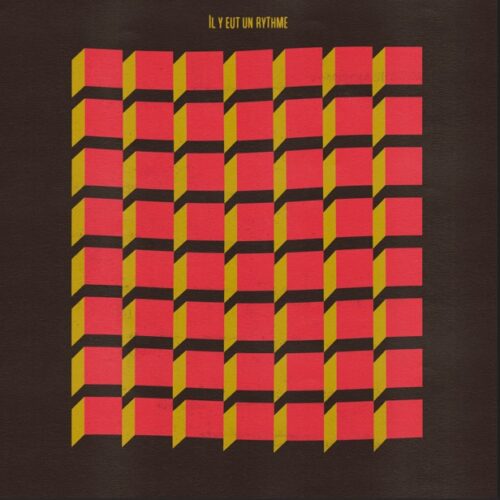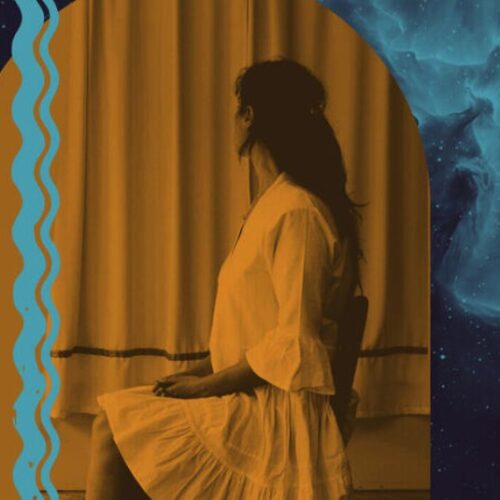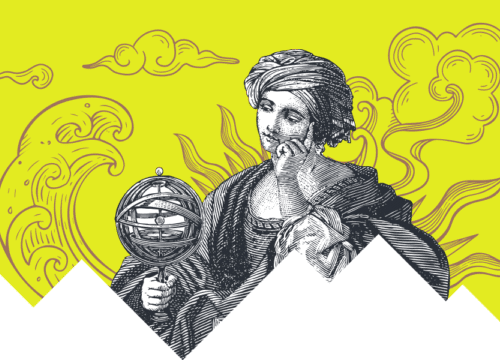Additional Information
The Orchestre symphonique de Laval kicks off its 2023-2024 season at Salle André-Mathieu. The task of conducting this first concert has been entrusted to Thomas Le Duc-Moreau, a rising star among the new generation of conductors. He will be the first in a series of renowned conductors including Andrew Crust, Julien Proulx, Jacques Lacombe, Jean-Michel Malouf, Simon Rivard and Naomi Woo, who will lead the Laval ensemble, which has been without a permanent musical director since Alain Trudel’s departure in 2022.
Trained at the Conservatoire de Montréal with Jacques Lacombe, Thomas Le Duc-Moreau’s career is already well-filled, as he is the youngest artist in the history of the Orchestre symphonique de Montréal to be appointed assistant conductor from 2019 to 2021. He has held similar positions with the Trois-Rivières and Québec orchestras, and has been guest conductor in Ontario and Europe, notably in Bonn and Prague.
Guest soloist for the evening is Ukrainian-born pianist Serhiy Salov. Winner of numerous prizes, notably at the Montreal International Music Competition (2004; 2014), he has made a name for himself through his humanitarian involvement in the Russian-Ukrainian conflict.
We had a cross-examination with these protagonists about the concert program.
PAN M 360: Tell us about the repertoire you’ll be performing with the OSL, an all-Slavic program. First of all, Thomas, did you put this program together yourself, or was it suggested to you?
THOMAS LE DUC-MOREAU: The program was proposed to me by the orchestra’s administration. The first piece is Glinka’s Ruslan and Ludmilla Overture, followed by Tchaikovsky’s Piano Concerto No. 1 with Serhiy Salov as soloist, and Tchaikovsky’s Fourth Symphony to finish. The first piece, very short at around five minutes, showcases the orchestra’s virtuosity, with very fast, exciting passages. We’re not into subtleties, we’re really into festivities. It’s really an overture that will set the hall alight. This is followed by the piano concerto, whose main theme in the first movement is very well known, with its great lyricism. It’s rather free, so we move from one theme to another, from one emotion to another, fairly quickly. In terms of the emotions deployed, we’re really into great romanticism, joy and exaltation, with great lines and richness of sound. I’d say it’s a concerto whose themes bring a certain positivism. We can feel moments of happiness, of greatness of spirit, of greatness of soul I would say, whereas in the Fourth Symphony, Tchaikovsky talks a lot about the fatality of human emotions. For Tchaikovsky, fate is inevitable, dramatic and necessarily pessimistic. The symphony will be about happiness, but other people’s happiness. It’s going to be about melancholy, happy memories that plunge us into a certain bitterness.
PAN M 360: Do you share this interpretation, Serhiy?
SERHIY SALOV: Yes, he could have read my mind! I would also add that a musical work is never “one emotional work”. In the Fourth Symphony, we have an absolutely dazzling finale and an extremely euphoric dance mixed with the tragedy that keeps coming back like a fixed idea. In the concerto, we have optimism at the beginning, which although written in the key of B flat minor, is bathed in major tones. It begins in major and ends in a bright major. But in places like the cadenza, for example, Tchaikovsky also draws on tragedy and depression. He was an extremely sensitive man who lost his mother at a very early age. His sensitivity was nothing short of exalted, and tragedy and depression were never far from his compositions. We always see a very complex being who is not in serenity.
PAN M 360: The title of the concert, which encompasses these three works, is The Slavic Soul. What does “Slavic soul” evoke for you in music?
SERHIY SALOV: It’s precisely this exalted sentimentality, the exposed, contrasting emotions. What comes to mind are the words of Milan Kundera, who said that the Slavic point of view is opposed to the American one. An American seeks a happy ending, a Slav thinks the world must end in apocalypse. Tchaikovsky’s point here represents a spectacular exception, as the first and third movements of the concerto and symphony both end with a resounding chord. The greatest Slavic composers, including the Czechs, Dvořák for example, have always had a more pompous nostalgia than the Germanics. It’s interesting because Austrian composers like Schubert and Mahler, took this bag of sentimentality anyway, which is heartbreaking.
PAN M 360: What does Tchaikovsky’s concerto mean to you, Serhiy Salov?
SERHIY SALOV: It’s a concerto that’s always been with me, that first accompanied me as a child when I was a listener myself and it was out of my reach pianistically. I always had this crazy desire to play it, but my teacher always forbade me to touch it because, obviously, my hand wasn’t big enough and also because the emotional side of maturity wasn’t developed enough. I finally tamed it at the age of 19 for the Marguerite-Long competition in Paris. After that, it became my competition piece. Now that my competition career is over, this piece will remain a friend for the rest of my life. It’s great to be able to present it tomorrow in Laval, one of the concertos that moves me the most.
PAN M 360: Is this the first time you’ve conducted these three pieces, Thomas?
THOMAS LE DUC-MOREAU: The symphony is the one I played most as a cellist when I was studying. I even conducted it at the Conservatoire. But I must admit that it’s rare for me not to be conducting a work for the first time. The concerto will be a first, and so will the overture, but surprisingly, I’ve already conducted the symphony.
PAN M 360: As far as your work as a conductor is concerned, you’ve worked with a number of well-known and important conductors, including Jacques Lacombe, who was your teacher at the Conservatoire, Bernard Labadie, Kent Nagano, François-Xavier Roth, Rafael Payare, Valéry Gergiev and others. What do you remember of their teachings, and how did working with them shape the conductor you are today and are becoming?
THOMAS LE DUC-MOREAU: That’s an interesting question. Honestly, maybe in a few years I’ll really know, but what’s certain is that all those conductors you mentioned have certainly had a huge influence on some facet of my musical approach.
The first chef I worked a lot with was Jacques Lacombe. There’s no doubt that his teaching is something that shaped me, that forged me and that follows me enormously. Even today, there are things he showed me seven years ago that I still think about today, and there are things I understand today in what he showed me then. I would also say that of my time at the OSM, with François-Xavier Roth and Gergiev, these are certainly the two where I found that in just a few seconds, the sound of the orchestra was completely transformed. It’s trying to understand “what’s doing that” that’s fascinating.
PAN M 360: What drives you when you’re on the podium?
THOMAS LE DUC-MOREAU: There are several things. I’d say that first of all, there’s the fact of being able to accomplish the result of all the work that’s been done upstream. For me, it’s dozens and dozens of hours spent in my office with the score, imagining how, with the musicians, with the orchestra, with the repertoire, we’re going to be able to convey the emotions of these pieces and the ideas they contain. There’s an immense excitement in being able to get everything I’ve dreamed and imagined out of my head, and to be able to communicate with the musicians. Then there’s just being in the moment, feeling the music. There’s something very physical about conducting and playing. You move with the music. The audience sits and listens, but for the musicians, there’s a gesture associated with it all. It’s very gratifying to have it in your body, to be able to physically express what you’re feeling.
PAN M 360: Let’s go back a bit, Mr. Salov, to February 2022, when you replaced André Laplante at short notice for the concert with the Orchestre métropolitain, performing Liszt’s Piano Concerto No. 1. You described this concerto as highly symbolic in the context of what is unfortunately still going on. Do you find the same symbolism in Tchaikovsky’s concerto?
SERHIY SALOV: There’s an even more direct and obvious symbolism in the themes Tchaikovsky uses in the first and third movements. The two main themes are drawn from Ukrainian folklore, which was never too far from Tchaikovsky’s mind, since he had relatives in Russia and he had relatives in the Ukraine. It was this Ukrainian kinship that he visited every summer and where he heard some really special songs that left their mark on him, not least in the first concerto. I’m delighted and comforted by that, too.
PAN M 360: In closing, I can’t help but ask you the Thomas question about the tragic event that struck the Kitchener-Waterloo Orchestra, which you have guest-conducted on several occasions, and which filed for bankruptcy a few days ago. What is your reaction to this situation?
THOMAS LE DUC-MOREAU: It’s certainly extremely difficult. Especially as next week I was due to be in Kitchener for a concert. There’s going to be a huge void. For me, it’s a week’s work, but for orchestral musicians, it’s whole lives that have changed in 48 hours. It makes us think a lot about the fragility of our institutions: we’re never really protected. For most orchestras, it’s one year at a time, so we’re never really protected from these situations. Right now, with my head full of Tchaikovsky’s music, I can’t help but make the connection with the program we’re about to present. In the symphony, he imitates a sort of sword of Damocles. And sometimes, this sword of Damocles falls. It’s always hanging over our heads, and we must never forget that it’s there. It’s all the more unfortunate that the musical director, Andrei Feher, is not only a colleague, but also a very good friend. I think if there’s anything that comes out of this, it’s that we have to keep fighting to show people that we have a place in society.
The L’âme slave concert will be presented at Salle André-Mathieu, on Wednesday September 27 at 7:30pm.
Programme :
Mikhaïl Glinka – Rouslan et Ludmilla, Overture
Piotr Ilitch Tchaïkovski – Piano Concerto no. 1 in B flat minor, op. 23
Piotr Ilitch Tchaïkovski – Symphony no. 4 in F minor, op. 36
Thomas Le Duc-Moreau, conductor
Serhiy Salov, pianist
For information and tickets, click here.























